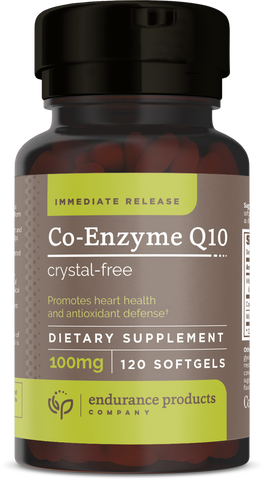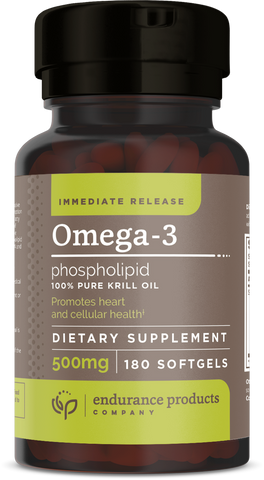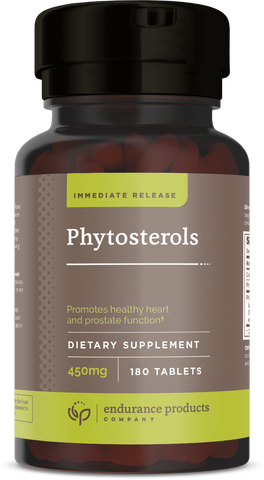You already know several foods to avoid to keep your cholesterol numbers healthy. But did you know there are also foods you should add to your diet? Yes, a number of foods can actually help keep your cholesterol in check. Here are three of them.
1. Sterol- and stanol-fortified foods
Also called phytosterols or stanols, these are compounds naturally found in the cell walls of plants. Because they have a similar chemical makeup to dietary cholesterol, they fight with real cholesterol for absorption in the gut when you eat them, helping to lower your blood levels. Once inside the walls of the intestine, the body doesn’t recognize these compounds, so they’re returned back into the digestive tract. Then both the real cholesterol and the imposters are excreted out of the body.
Phytosterols or stanols occur naturally in fruits, vegetables, whole grains, nuts, and seeds, though only in small amounts. Because of their health benefits, manufacturers have added them to certain foods like margarines, cheese, orange juice, milk, and bread. Read labels to find out how much is in a serving size of each product.
If you need to lower your cholesterol, the National Cholesterol Education Program recommends that you take in 2 grams of plant sterols or stanols each day. You can also boost your daily intake by supplementing with Phytosterols.
2. Salmon and other fatty fish
If you’re looking for a main dish to put on your plate, try salmon instead of steak. Salmon and other fatty fish are not only good sources of protein, but they’re lower in saturated fat and good sources of omega-3 fatty acids. According to the American Heart Association, omega-3 fatty acids promote both healthy heart rhythm and blood vessel health.
And research from Loma Linda University suggests that a diet including two servings of fatty fish per week can raise blood levels of HDL cholesterol (the good kind) by 4 percent and decrease triglyceride levels by a little over 11 percent.1 The American Heart Association recommends eating at least two servings of fish (particularly fatty fish) every week. Each serving is 3.5 ounce cooked, or about ¾ cup of flaked fish. Avoid adding unhealthy fats by baking or grilling the fish.
If fish isn’t your thing, ground flaxseed or canola oil also contain some omega-3 fatty acids. You can also boost your daily intake by supplementing with Omega-3 Phospholipid.
3. Berries
A food that tastes like candy but is good for you? Berries check off all the boxes. They’re high in fiber and vitamin C, and they’re rich in polyphenols, including procyanidins, quercetin, phenolic acids, and particularly anthocyanins. Together, these compounds not only give berries their rich, intense color, but also their ability to help the body fight free radicals and possibly reduce the risk of cancer.
Berries can also help lower LDL cholesterol (the bad kind). In one meta-analysis, Chinese researchers looked at 22 randomized controlled trials with over 1,250 volunteers. They found that consuming a wide range of berry products⎯bilberry, blueberry, cranberry, elderberry, raspberry or whortleberry⎯significantly lowered blood levels of LDL cholesterol by an average of 8 mg/dl.2
You can enjoy any of these foods as part of a heart-healthy diet whether you take a statin drug or not. But if you do take a statin, be sure to add CoEnzyme Q10 to your daily routine. Why? A growing body of research shows statins can deplete your body stores of CoQ10, and supplementation helps replenish it.*
About Endurance Products Company
Endurance Products Company has been a trusted source of quality dietary supplements since 1978. Our sustained-release and extended-release tablets feature a unique vegetable wax matrix that releases nutrients in a slow, steady manner over a period of hours for optimal nutrient absorption and retention.
References
1. Rajaram S, Haddad EH, Mejia A, Sabaté J. Walnuts and fatty fish influence different serum lipid fractions in normal to mildly hyperlipidemic individuals: a randomized controlled study. Am J Clin Nutr. 2009;89(5):1657S-1663S. PMID: 19339404.2. Huang H, Chen G, Liao D, Zhu Y, Xue X. Effects of berries consumption on cardiovascular risk factors: a meta-analysis with trial sequential analysis of randomized controlled trials. Sci Rep. 2016;6:23625. PMID: 27006201.
* These statements have not been evaluated by the Food and Drug Administration. This product is not intended to diagnose, treat, cure or prevent any disease.



